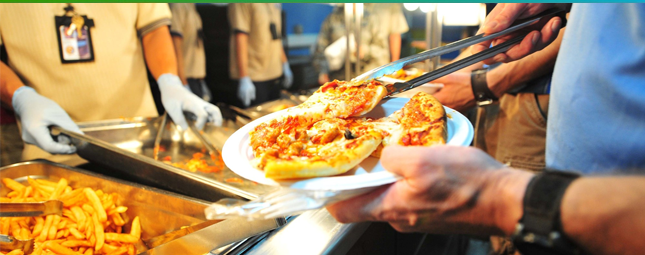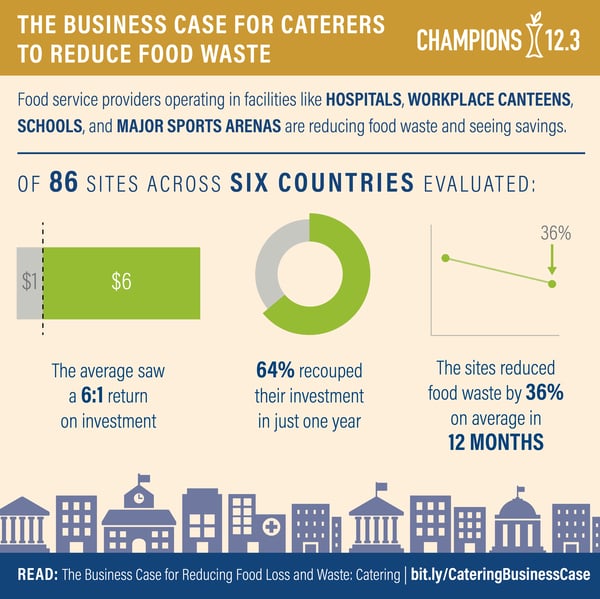New Research: Foodservice Contractors Save $6 for Every $1 Invested in Reducing Food Waste

New research on behalf of the U.N.’s Champions 12.3 finds there is a strong business case for foodservice operators serving hospitals, schools, sports arenas and other facilities to reduce food waste. The Business Case for Reducing Food Loss and Waste: Catering shows that for every $1 caterers invested in programs to curb food waste, they saved more than $6 in operating costs. (“Catering” here refers to “contract catering” or “foodservice contract management.”)
The first-of-its kind industry analysis examined financial cost and benefit data for 86 sites across six countries. Within one year, the sites had reduced food waste by 36 percent on average, and 64 percent had recouped their investment.
LeanPath supplied data for this new study and reviewed the results before publishing.
These food service operators made a range of investments in food waste reduction programs, including purchasing smart scales--including LeanPath technology--training staff in measurement and techniques to reduce waste, and redesigning menus. Seventy-nine percent of sites were able to keep their total investment in food waste reduction below $10,000.

The financial returns come from reducing purchase costs by buying less food, increasing revenue from new menu items developed from unsold food or those once considered “scraps,” and reduced waste management costs.
“Taking action across the food industry is vital if we are to halve global food waste by 2030,” said Dave Lewis, Group Chief Executive of Tesco and Chair of Champions 12.3. “As Chair of Champions 12.3, I’m delighted to be able to share today’s report, which clearly shows that reducing food waste in the catering sector isn’t just the right thing to do, it also makes good business sense.”
“We’ve long known that contract catering struggles with food waste,” said LeanPath CEO Andrew Shakman. “This report illustrates that opportunity, as well as the immense opportunity to drive change and save significant financial resources. Most of this change is enabled via daily measurement of food waste, which changes the kitchen culture. LeanPath is proud to be the pioneer in food waste prevention for this market and we know our automated tools have made a fundamental shift in behavior possible."
The report recommends foodservice managers take a “target, measure, act” approach to reduce the amount of food wasted from their kitchens. It outlines five actions institutional caterers should take, based on interviews with those who have implemented successful food waste reduction programs:
- Measure the amount of food being wasted to know where to prioritize efforts
- Engage staff
- Start small and get creative
- Reduce overproduction
- Re-purpose excess food.
For more information, read the full report here. This report is the follow up from The Business Case for Reducing Food Loss and Waste (published March 2017), and is the second in a series of papers examining the business case for specific industries. An analysis of the hotel industry was released in April 2018, and an analysis on the restaurant industry will be released soon.
